![]()
Order Ketamine Online
![]()
Order Ketamine Online
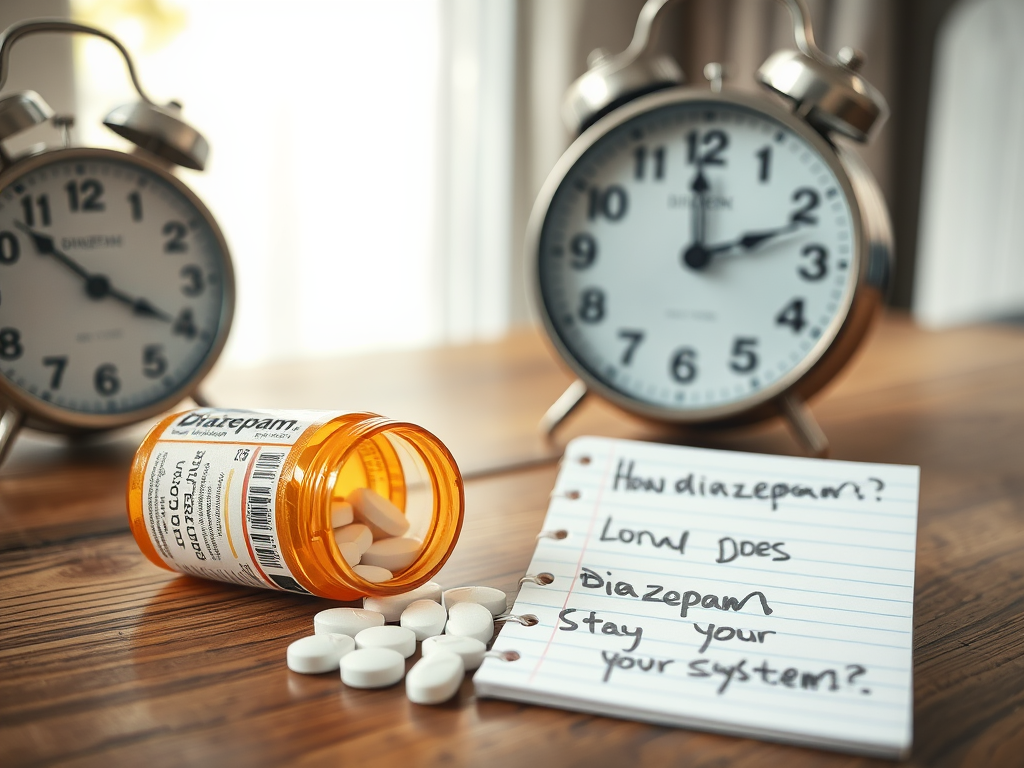
how long does diazepam stay in your system
how long does diazepam stay in your system: Have you ever wondered how long diazepam, commonly known as Valium, lingers in your system? 🤔 Whether you’re concerned about potential drug interactions, workplace testing, or simply curious about the effects of this widely prescribed medication, understanding its persistence in the body is crucial.
Diazepam, a powerful benzodiazepine, can be a double-edged sword. While it effectively treats anxiety, muscle spasms, and seizures, its long-lasting presence in the body can lead to unexpected consequences. From potential drug interactions to the risk of developing dependency, the duration of diazepam’s stay in your system is more than just a matter of curiosity – it’s a vital piece of information for your health and well-being. how long does diazepam stay in your system
In this comprehensive guide, we’ll delve into the intricate details of diazepam’s half-life, explore how long it remains detectable in various bodily fluids, and uncover the factors that influence its longevity in your system. Whether you’re a patient, healthcare professional, or simply seeking knowledge, join us as we unravel the mystery behind how long does diazepam stay in your system and what it means for you. 💊🕒
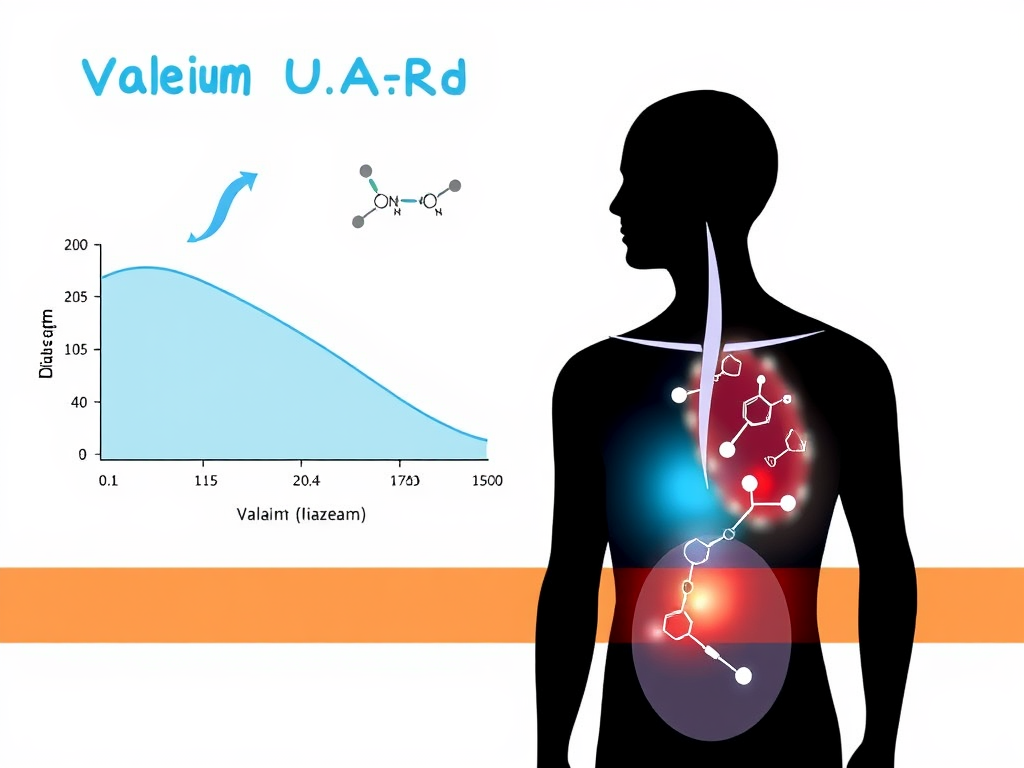
The half-life of Valium (diazepam) is a crucial factor in determining how long the drug remains active in your system. Typically, Valium has a long half-life compared to other benzodiazepines, ranging from 20 to 100 hours, with an average of about 43 hours. just start with diazepam 2mg buy
Several factors can affect the half-life of Valium:
| Factor | Impact on Half-Life |
|---|---|
| Age | Increases in older adults |
| Liver function | Impaired function extends half-life |
| Body composition | Higher body fat may prolong half-life |
| Dosage | Higher doses may take longer to eliminate |
| Frequency of use | Regular use can lead to accumulation |
It’s important to note that Valium produces several active metabolites, including nordiazepam, which has an even longer half-life of up to 200 hours. This means that while Valium itself may be eliminated relatively quickly, its effects and detectability can persist for much longer due to these metabolites.
Now that we understand the half-life of Valium, let’s explore how long diazepam actually stays in your system and the various factors that can influence its detection time. how long does diazepam stay in your system
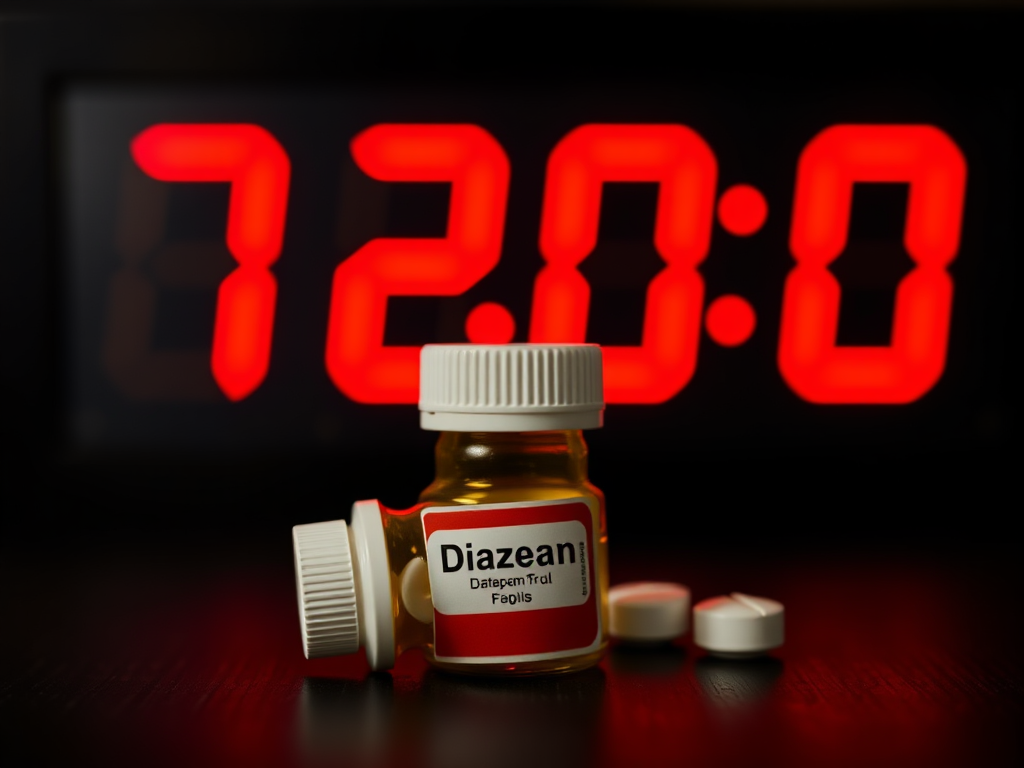
Diazepam typically stays in your system for several days to weeks, depending on various factors. On average, it can be detected in urine for 1-6 weeks, in blood for 1-3 days, and in saliva for 1-10 days. However, long-term users may have traces in their system for up to 6 weeks. It’s important to note that these timeframes can vary based on individual factors like metabolism, dosage, and frequency of use. diazepam 2mg buy
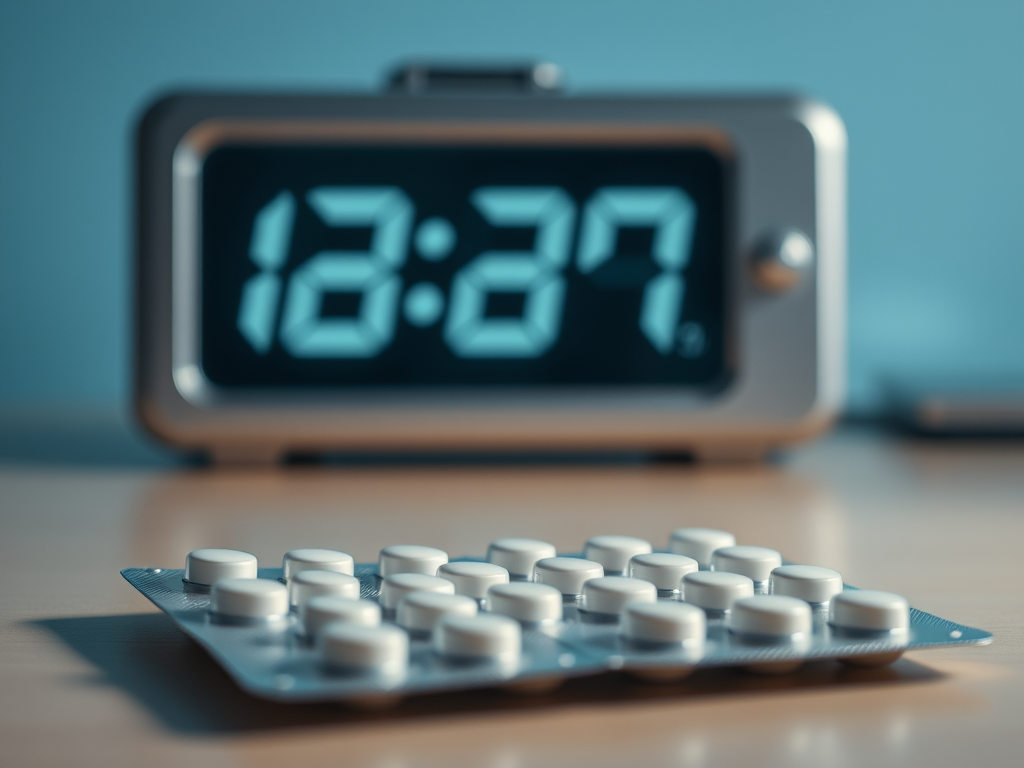
The duration of diazepam’s effects can vary depending on several factors, including dosage, frequency of use, and individual metabolism. Generally, the immediate effects of diazepam last between 4 to 6 hours. However, due to its long half-life, some residual effects may persist for up to 24 hours or longer.
As we approach a new season, it’s an opportune time to consider making positive changes in your life, especially if you’re struggling with diazepam use. Here are some steps to help you get started:
| Fresh Start Step | Description |
|---|---|
| Professional Assessment | Consult with a healthcare provider to evaluate your diazepam use |
| Tailored Treatment Plan | Work with experts to create a personalized recovery strategy |
| Support Groups | Join support groups to connect with others facing similar challenges |
| Holistic Approaches | Explore meditation, exercise, or therapy as alternatives to medication |
| Progress Tracking | Keep a journal to monitor your progress and celebrate milestones |
Remember, overcoming diazepam dependency is a journey, not a destination. By taking the first step towards a fresh start, you’re investing in your long-term health and well-being. Next, we’ll explore the factors that affect how long Valium stays in your system, which is crucial information for those considering treatment or facing drug tests.

Valium (diazepam) can be detected in various biological samples for different periods:
| Test Type | Detection Window |
|---|---|
| Blood | Up to 48 hours |
| Urine | Up to 10 days |
| Saliva | Up to 10 days |
| Hair | Up to 90 days |
Several factors can affect how long Valium remains detectable in your system:
Diazepam undergoes a complex metabolic process in the liver, producing several active metabolites:
These metabolites can extend the detection window, especially in urine tests. The liver’s efficiency in processing diazepam plays a crucial role in its elimination rate.
Now that we’ve examined how long Valium stays in your system and the factors influencing its detection, let’s explore the various factors that affect how long Valium remains active in the body.

Body composition plays a crucial role in how long diazepam stays in your system. Valium is lipophilic, meaning it tends to accumulate in fatty tissues. People with higher body fat percentages may retain the drug for longer periods.
| Body Fat Percentage | Impact on Diazepam Retention |
|---|---|
| Low (< 20%) | Shorter retention time |
| Medium (20-30%) | Average retention time |
| High (> 30%) | Longer retention time |
Certain medications can significantly affect diazepam metabolism:
These interactions can prolong the half-life of diazepam, extending its detection time in the system.
The amount and frequency of Valium use directly impact its duration in the body:
As we age, our body’s ability to metabolize and eliminate drugs changes:
These factors collectively influence diazepam’s duration in the system, affecting detection times in drug tests and potential withdrawal symptoms.

Acknowledging a Valium addiction is the first crucial step towards recovery. If you find yourself unable to control your Valium use or experiencing withdrawal symptoms when not using, it’s time to seek professional help. how long does diazepam stay in your system
| Treatment Type | Duration | Intensity | Best For |
|---|---|---|---|
| Medical Detox | 5-10 days | High | Severe addiction |
| Inpatient Rehab | 30-90 days | High | Moderate to severe addiction |
| Outpatient Programs | 3-6 months | Moderate | Mild to moderate addiction |
| CBT | Varies | Low to Moderate | All levels of addiction |
| Support Groups | Ongoing | Low | Maintenance and relapse prevention |
Valium addiction treatment requires professional supervision due to the potential severity of benzodiazepine withdrawal. Medical professionals can provide a tailored treatment plan, ensuring a safe and effective recovery process.
Now that we’ve explored treatment options for Valium addiction, it’s crucial to understand how to find the right treatment center for your specific needs.

Finding a reputable treatment center for Valium addiction is crucial for successful recovery. Here are some resources to help you locate a center near you:
Reliable sources of information on diazepam and addiction treatment are essential for making informed decisions. Here’s a comparison of some trusted sources:
| Source | Type of Information | Reliability |
|---|---|---|
| PubMed | Scientific research | Very high |
| FDA | Drug information | High |
| NIDA | Addiction resources | High |
| WebMD | General health info | Moderate |
| Mayo Clinic | Medical advice | High |
When seeking treatment or information about Valium addiction, always consult multiple sources and professional healthcare providers. Remember that recovery is a journey, and finding the right support is crucial for long-term success.
Next, we’ll explore related articles that can provide additional insights into diazepam use, addiction, and recovery processes.

Recognizing the signs of Valium withdrawal is crucial for those seeking recovery. Common symptoms include anxiety, tremors, and insomnia. Detox locations offer professional support to manage these symptoms safely.
Tapering off Valium should be done under medical supervision. A gradual reduction in dosage helps minimize withdrawal symptoms and ensures a safer transition.
Effective Valium treatment combines medical detox with therapy. Here’s a comparison of treatment options:
| Treatment Type | Duration | Approach |
|---|---|---|
| Inpatient | 30-90 days | 24/7 care, intensive therapy |
| Outpatient | Varies | Regular sessions, more flexibility |
| Holistic | Ongoing | Combines traditional and alternative therapies |
Valium may be prescribed to manage opiate withdrawal symptoms, but this approach requires careful medical oversight due to the risk of cross-addiction.
Signs of Valium use include:
Valium can interact dangerously with:
Always consult a healthcare provider about potential drug interactions.
Now that we’ve covered related topics, let’s explore some frequently asked questions about Valium.
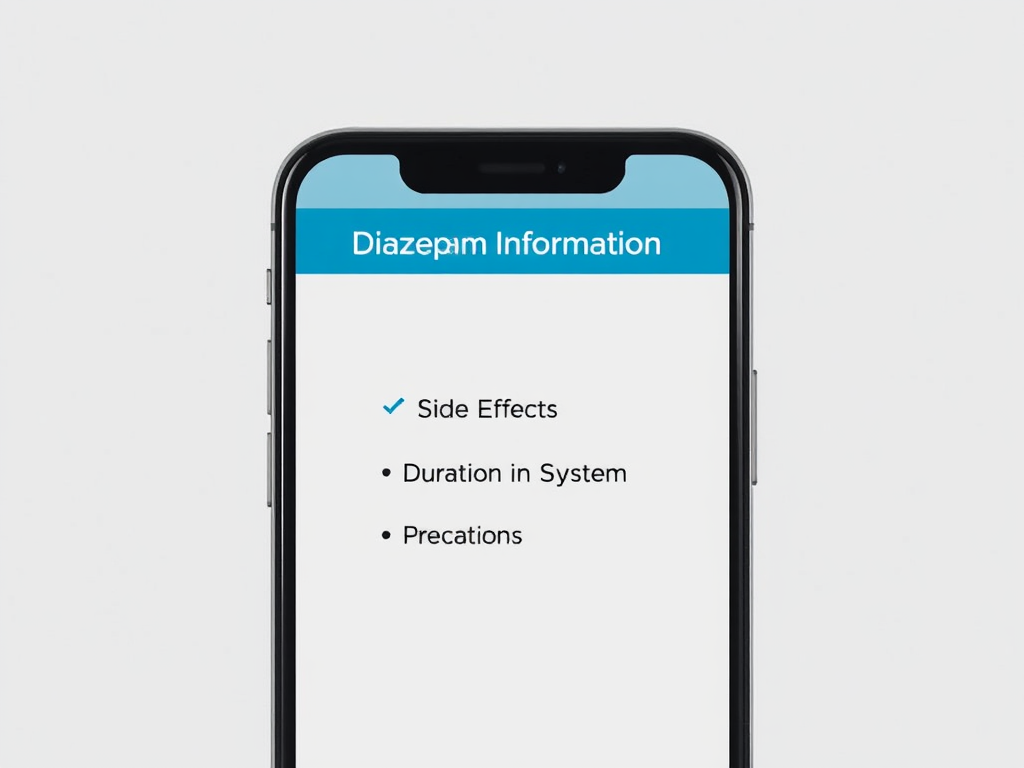
| Treatment Type | Description |
|---|---|
| Inpatient | 24/7 care and supervision |
| Outpatient | Flexible treatment while living at home |
| Detox | Medically supervised withdrawal |
Our comprehensive menu of services is designed to address various aspects of Valium addiction and recovery. From inpatient care for severe cases to outpatient programs for those maintaining daily responsibilities, we offer tailored solutions. Our detox program ensures safe withdrawal under medical supervision. We also provide essential resources like addiction education and support groups to reinforce recovery. Our additional services, including mental health assessments and dual diagnosis treatment, ensure we address the root causes of addiction. With holistic therapies and medication management, we take a well-rounded approach to your recovery journey.
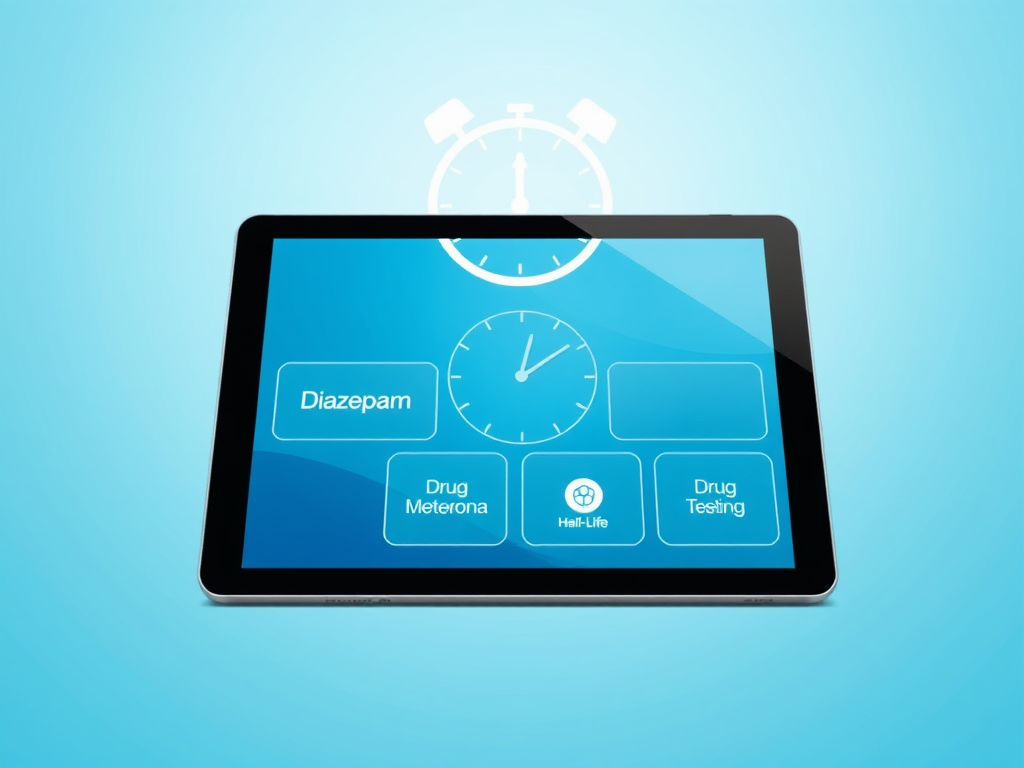
| Topic | Related to Diazepam | Key Considerations |
|---|---|---|
| Substance Abuse | Yes | Risk of addiction, withdrawal symptoms |
| Mental Health | Yes | Used to treat anxiety and insomnia |
| Treatment | Yes | MAT may include tapering off diazepam |
| Recovery | Yes | Ongoing support crucial for long-term sobriety |
As we’ve explored the various aspects of diazepam use and its impact on the body, it’s important to broaden our understanding of related topics. Substance abuse and addiction are closely linked to diazepam use, particularly when it comes to benzodiazepine addiction and prescription drug abuse. Mental health issues often co-occur with diazepam use, as it’s commonly prescribed for anxiety disorders and insomnia.
Treatment options for diazepam addiction may include medication-assisted treatment, which can help manage withdrawal symptoms, and cognitive behavioral therapy to address underlying issues. Holistic approaches can complement traditional treatments, offering a well-rounded recovery plan.
Recovery and support play crucial roles in overcoming diazepam addiction. Support groups provide a sense of community, while aftercare programs and relapse prevention strategies help maintain long-term sobriety. Understanding these interconnected topics is essential for anyone dealing with diazepam use or seeking help for addiction.
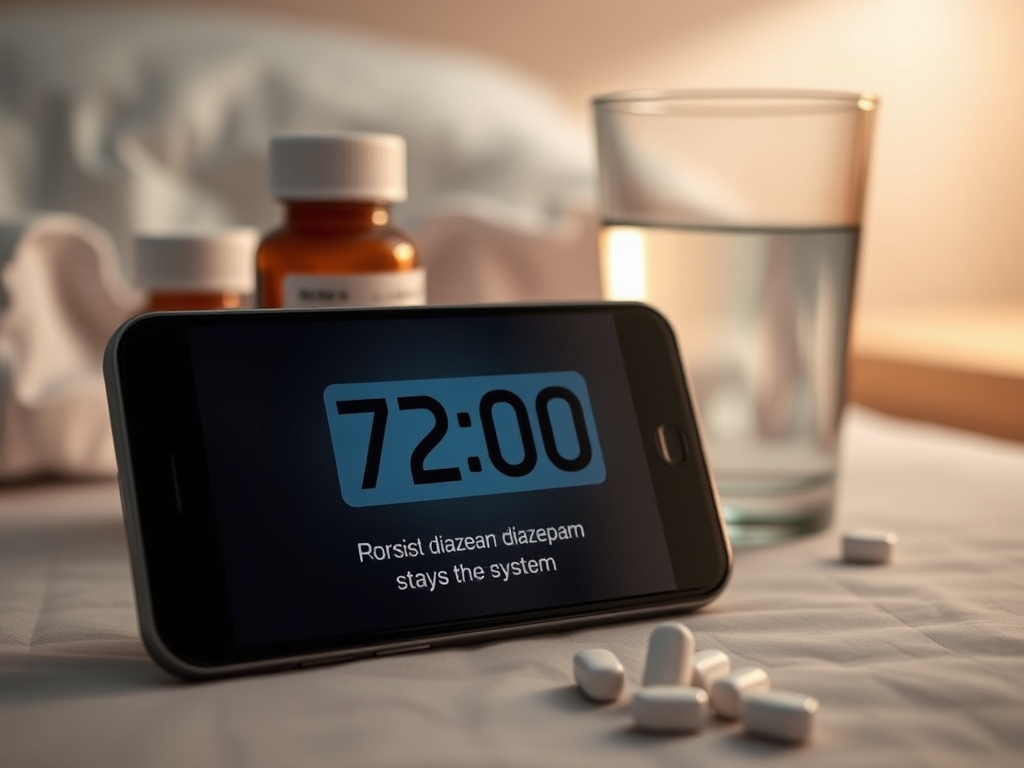
Diazepam, commonly known as Valium, can remain in your system for an extended period due to its long half-life. The duration varies depending on factors such as dosage, frequency of use, age, metabolism, and overall health. It’s crucial to understand that while the immediate effects of diazepam may wear off within hours, traces of the drug can be detected in various bodily fluids for days or even weeks after use.
If you or someone you know is struggling with Valium addiction, seeking professional help is essential. Treatment options are available to support recovery and improve overall well-being. Remember, understanding how long diazepam stays in your system is just one aspect of responsible use; always consult with a healthcare professional for personalized advice and guidance on medication use and potential risks.